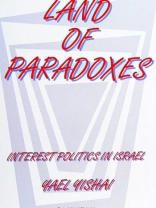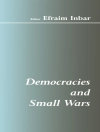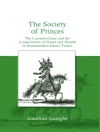This book examines the structure of Israeli interest groups, their strategies, their effectiveness, and their relations with state organizations and political parties. It addresses such important questions as the following. What are the links between political parties and interest groups? What are the attitudes of senior state officials toward interest groups? Why do interest groups influence public policy and to what extent? Are some groups more influential than others? Is Israel moving toward a post-materialist era?
Land of Paradoxes reflects the realities of contemporary Israeli politics. Using a framework of universal interest-group configurations, the book shows how Israel deviates from these patterns and places it in a historical and comparative perspective.
Table des matières
List of Illustrations
List of Tables
Preface
Introduction: Israeli Interest Group Politics in a Theoretical Perspective
1. The Israeli Polity: Party, State, and Society
2. The Universe of Interest Groups
3. Interest Groups and Political Parties: Patrons, Partners, or Rivals?
4. State and Groups: Defending the Public Interest
5. The Organization of Interest Groups: The Institutional Framework
6. Interest Groups and State: Opportunities for Influence
7. Strategies of Influence: Bargaining, Coordination, or Integration
8. Interest Groups in the Policy Process
9. Determining Outcomes: Who Gets What and Why?
10. Israeli Interest Groups between Party and State
Appendixes
Notes
Bibliography
Index
A propos de l’auteur
Yael Yishai is Professor in the Department of Political Science, University of Haifa. Her previous books include Land of Paradoxes: Interest Politics in Israel (also published by SUNY Press); Factionalism in the Labor Movement: Faction B in Mapai; Israel: The Peaceful Belligerent, 1967–1979 (with A. Sella); Land or Peace: Whither Israel?; Interest Groups in Israel: The Test of Democracy; and The Israel Medical Association: The Power of Expertise.












